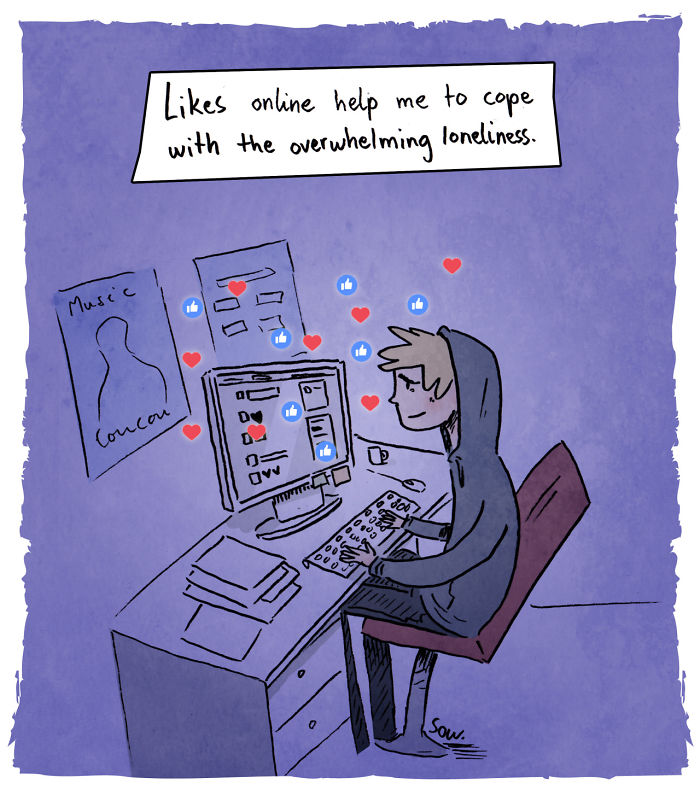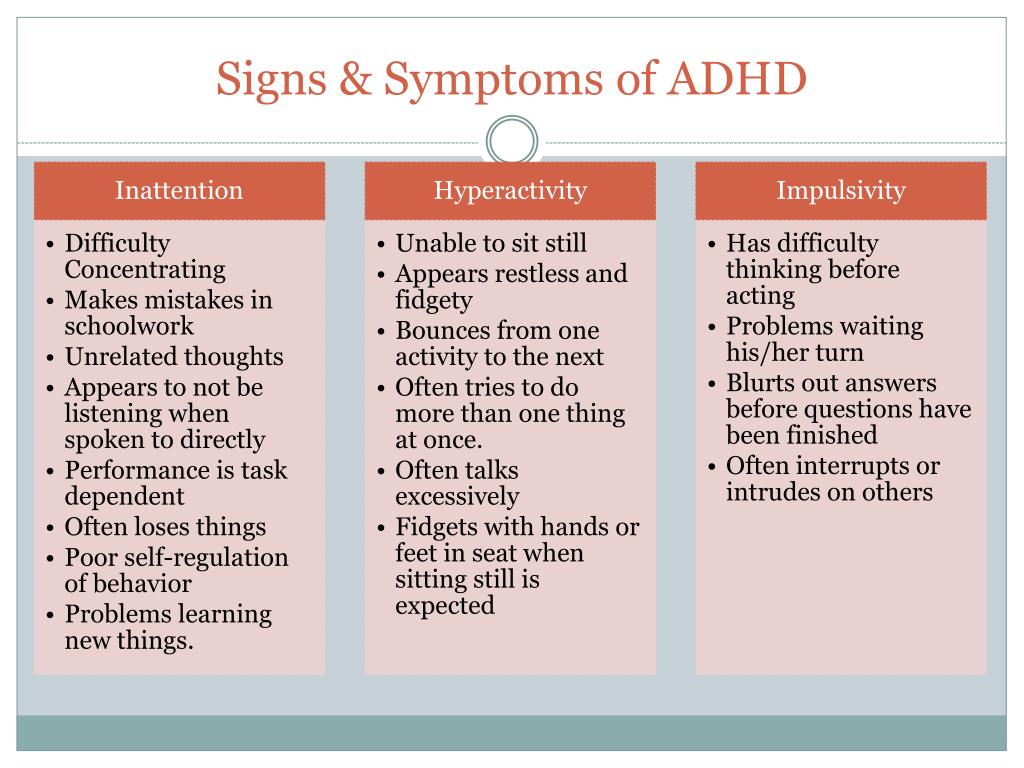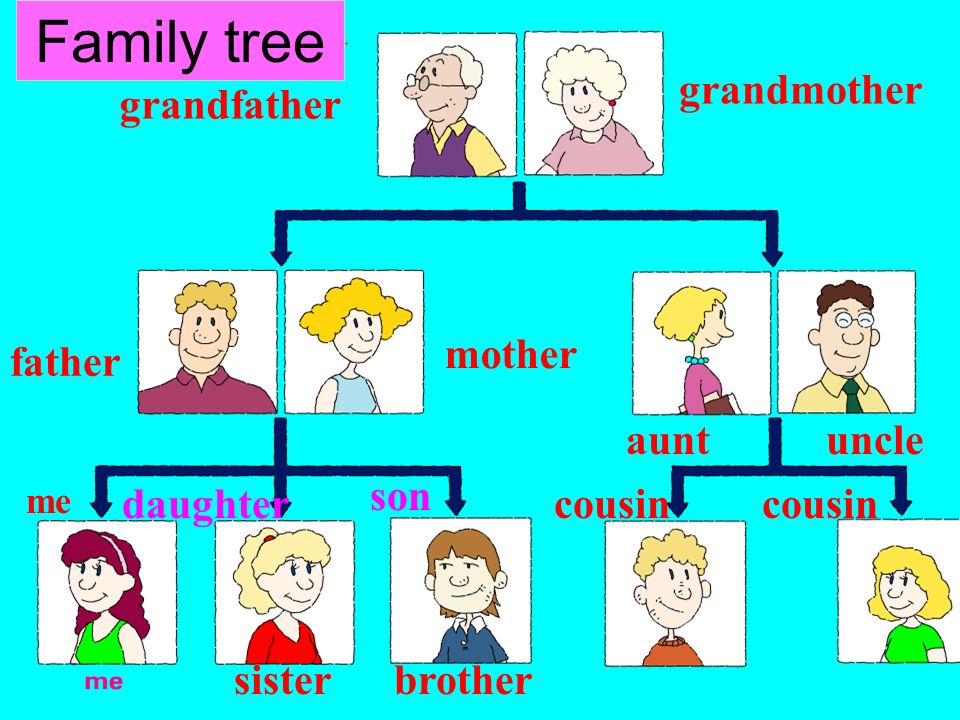Signs that your marriage is in trouble
29 Warning Signs That Your Marriage is in Trouble
If you’re in a bad marriage, your self-esteem will suffer. You might find yourself depressed and living in various states of anxiety.
Nobody should go through life that way.
Every marriage has bumps in the road, but when those bumps become too big or too frequent, you need to take a much closer look at where your life and your marriage is headed.
How many red flags do you need?
Some of them may be playing out right in front of you and you’re either too busy or too oblivious to realize your marriage is in trouble and might be on the fast track to separation and divorce.
This isn’t to say if you see yourself in many of the things that follow that your marriage can’t be saved…because it can.
But the first step in saving a marriage is recognizing problems and taking steps to work together with your spouse to fix them.
Looking back, I realize now that the red flags were staring me right in the face. How many of these warning signs can you spot in your own marriage?
Do you come home from a long day at work, change clothes and immediately head for your little private part of the house? Is it more important to grab a glass a wine than a hug and kiss when one of you walks in the door?
Everybody needs to unwind, but when you don’t like hanging out with each other on the weekends, or in the evenings when you both get home, a relationship starts to become a burden instead of a privilege.
Spending time apart is okay, but it’s a problem if you’d rather spend time apart more often than not.
Red Flag #2: You don’t fight anymore.This sounds counterintuitive, but if you can’t even muster up a good degree of anger toward your spouse, your relationship may be in even bigger trouble.
When you can’t talk about what happened, or you are so standoffish that you even refuse to listen anymore, you allow problems to fester and multiply.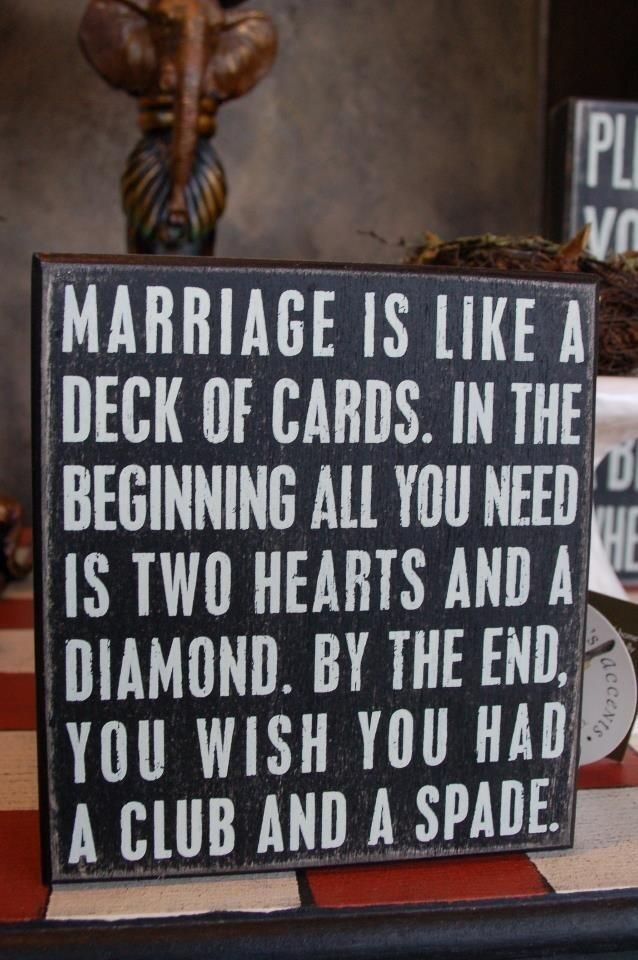
With a fight, at least you are expressing your emotions, and many times, as hard as a fight might be, it does allow for the possibility of a resolution coming forward.
A lack of fighting is a sign of indifference, and indifference is worse than anger. Fighting means you’re still committed to your relationship to some degree. Not fighting could be a very troubling sign that you’ve already thrown in the towel.
If your marriage is on the rocks, be sure to get the support you need. Consider talking to a therapist to help you process your feelings and get clear on where to go from here. Online therapy sites like BetterHelp are a great option. With BetterHelp, you can choose from thousands of licensed therapists starting at $40 per week for unlimited counseling anytime, anywhere. Visit BetterHelp to get started. Red Flag #3: No more sex.Sometimes there are medical issues that preclude having sex, but when it’s a conscious decision to not pursue coitus, you are cashing in your intimacy chips.
Intimacy is what separates your marriage from every other relationship you have, and when that’s gone it’s a huge issue. If there are medical issues, it still doesn’t mean you can’t show affection with hugging, kissing or holding hands.
When you can’t even do that or don’t want to do that, an alarm should go off about your relationship.
Red Flag #4: Sexual incompatibility.If there’s still a flame that burns in the bedroom, but you are a small candle and your mate’s is a raging forest fire, you could be sounding a fire alarm in your relationship.
Sex drives change over time. Strains and stresses of modern life will kill a libido too.
But if you can’t work up a good and passionate session on a fairly regular basis and enjoy that time spent together, then sex is a problem and not a joy in life.
Fortunately, there are lots of remedies out there you can try, but if you aren’t willing to spice up your love life or be attentive to your partner’s needs, that will be a problem in the long run.
Do we really even need to mention how damaging this can be to a marriage? It results in a breakdown of trust and communication that can be challenging to move past.
Related: Infidelity: Is Cheating a Deal Breaker?
Red Flag #6: You are not able to have an uncomfortable conversation.Every healthy marriage will have challenges along the way and communicating about those challenges is critical to maintaining a healthy relationship.
Are you able to talk about money, sex, future plans, children, relationships with other family members, and other touchy subjects?
If you’re willing to be honest, it means there is a level of trust…but if every conversation on a touchy subject just feels like nagging, you are not really going to listen to each other and that means your relationship is going to suffer.
Red Flag #7: You never disagree with your spouse.
This is another version of not being able to have an uncomfortable conversation.
The difference is that you assume a more passive stance because you are either indifferent, fearful of how the conversation will end or you won’t like what you will hear. Every marriage has disagreements and while fighting is bad, never having disagreements could be a sign that something isn’t right either.
In situations like this, it’s not uncommon for things to fester under the surface until they explode into a massive and unfortunate argument that can be the end of a marriage.
Red Flag #8: You won’t go to counseling.You’ve identified the problems in your marriage, and you’ve talked to your spouse about them.
One of the helpful solutions for many couples is going to either individual or couples counseling.
But if you or your spouse refuse to even seek help, it will only confirm the serious level of dysfunction that exists in your marriage.
Granted, in some marriages, one spouse may stay home while the other works, or one spouse may have more flexibility when it comes to taking care of household duties…but when there is clearly an unequal distribution of house work or how to do it or to what level a house should be cleaned or function, you’ve got an issue.
It’s further compounded when you’re in a home an attempting to raise children, who can add a tremendous strain on household resources.
Each spouse may also have their hot issue items as well, such as a sparkling clean bathroom or kitchen, while the other spouse may put added value on having laundry done or good meals around a dinner table every night.
You are the product of two separate households from where you were raised, and this will create different value systems that you will either need to find compromise with or prepare to do battle with every single day.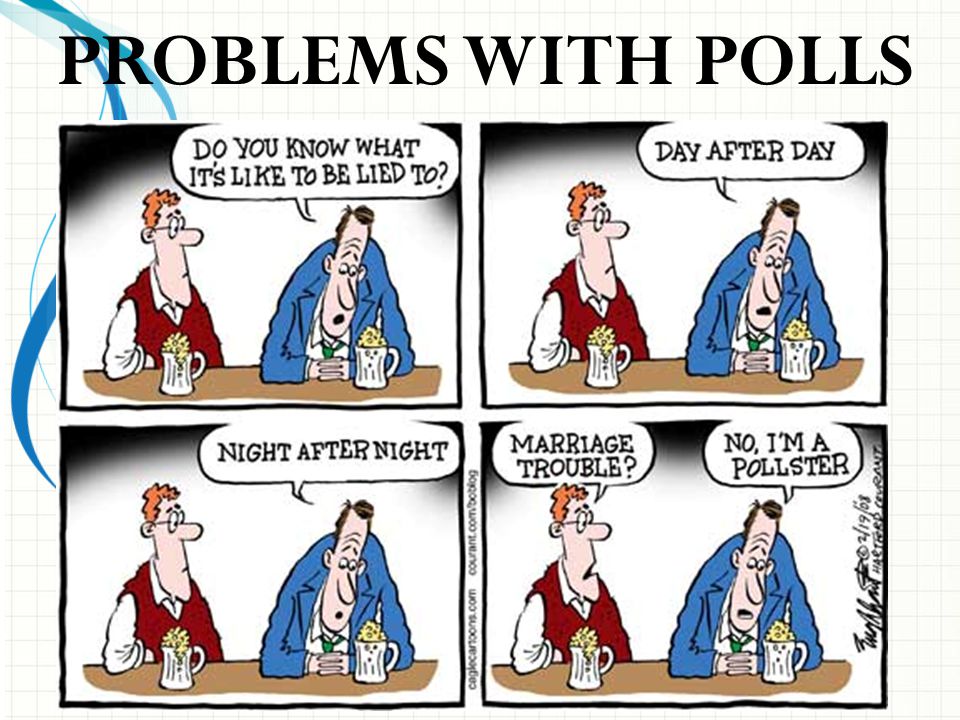
Many people turn to drugs and alcohol even when a marriage is going well but when this happens as a marriage is going bad, the effects multiply exponentially. If you want to speed up wrecking your marriage, drugs and alcohol will do it.
This kind of destructive behavior can also come back on you in a big way during and after a divorce.
If it can be shown that this played a role in the break-up in your marriage, it can be used as grounds for divorce in some states.
It will also most certainly play a role in child custody issues and may even impact alimony or how property is divided in some cases. If you care about your marriage, keep your drug and alcohol habit in check.
The hangover could be much more massive than you even suspect.
Red Flag #11: Your spouse has the memory of an elephant.It’s one thing to argue, but to bring up a minor transgression that took place several years before is not only bad form, it’s a big sign that somebody has been keeping score.
You aren’t the same person you were many years ago, but if your spouse is stuck on that version of you or brings in several examples of past behavior from way back when, look out!
Those memories fester, become bigger than they were and manifest themselves in clusters that combine to make your life an ugly train wreck that can seemingly come out of nowhere.
It’s especially bad when you’ve let go and moved on and can barely remember those past events or the memories are so hazy that you have no effective way to counter the accusations against you.
Red Flag #12: Lack of respect for your privacy.Your spouse may check your phone messages or texts without you knowing it, either by hacking into your phone or insisting you give them access.
They may scour phone bills that come in or track all your social media accounts as well. These signs of distrust are also signs of emotional abuse.
While it’s nice to share as much as possible with your spouse, there are some things you might just prefer to be kept private.
It’s one thing to do a little teasing every now and again, but quite another to do a full-court press and embarrass your spouse, especially in your mutual circle of friends, coworkers or relatives.
If you’ve been married for any length of time, you should know the soft spots your spouse has and if you want to ruin your marriage, make sure you publicly humiliate your spouse every chance you get.
There is a sanctity that goes with marriage, and if you or your spouse cannot respect that sanctity, then you have already taken a big step towards ending your relationship.
Red Flag #14: You’re the last one to know.There is an information hierarchy that should be in play most of the time during a marriage. Your spouse should be among the first to know about goings-on at work, weekend plans with friends, enrolling kids in classes, and on and on.
It’s disrespectful to unilaterally make decisions or share information with people other than your spouse in most situations.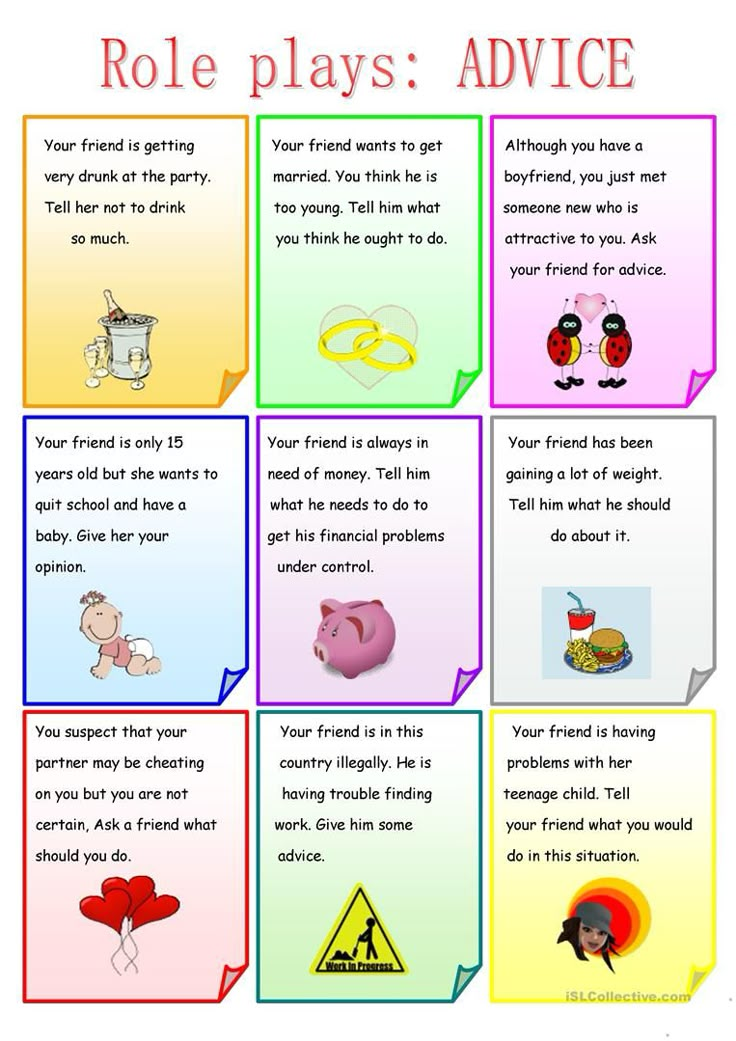
If it’s ever happened to you, you know the feeling of betrayal that comes with it. It doesn’t feel good, that’s for sure.
Red Flag #15: Your friends spot problems in your relationship.You may be blind or oblivious to the problems in your relationship, either out of convenience or fear, but if your friends raise issues about the quality of your marriage, you need to listen.
If you are in denial or ignore obvious signs that others can see, you are setting yourself up to be blindsided.
Sometimes friends can also be a good source for you to unload your problems and help you work through solutions that may be jamming up your marriage.
You need to know who you can trust, who has a good and balanced view of your relationship and have a small circle of friends and relatives who can give you legitimate advice.
Similarly, if they come to you unsolicited with problems they see, you could be further along the breakup curve than you realize.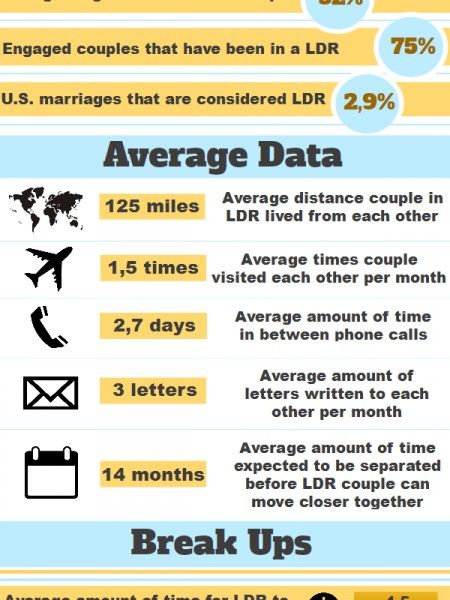
Unless you’ve agreed that one of you will be a stay-at-home spouse, both of you need to be committed to finding and keeping jobs to the best of your abilities.
This isn’t to say that you won’t hit rough patches in your employment, but if it takes both of your incomes to keep a home running, then you both need to find jobs and stick with them.
You’ll be able to tell when a spouse puts forth honest effort in this area…or not.
Red Flag #17: A spouse who forgets or doesn’t keep special days as special.If your other half forgets birthdays, anniversaries or other days that are special in your lives, or worse yet remembers but does a crappy job of celebrating the occasion, then you don’t need a card or flowers to tell you something is amiss.
Unless your spouse is a complete social misfit (and some spouses are) then it’s not that hard to put some effort into remembering these kinds of dates and then making them enough of a priority to put some effort into making you feel special.
It’s simply not that hard to do in a healthy relationship.
Red Flag #18: Lies about or hiding money issues.One of the most common reasons marriages fail is related to money issues.
One spouse generally controls the purse strings, paying bills, budgeting and handling investments and bank accounts, but that information should be an open book and readily available to the other spouse without hesitation.
Some spouses may develop a spending or gambling addiction that can lead to them hiding money problems that will threaten and undermine the financial stability of a marriage.
Some people shop online as a means of self-medication or to meet a need that isn’t being met elsewhere in their lives.
It can quickly spiral out of control and put extreme pressure on a relationship, not to mention having to deal with dishonesty, betrayal and anger as well.
Red Flag #19: You don’t look forward to coming home.
It’s one thing to feel this way while you’re in an argument, but when it becomes a standard way of how you feel, you have already started to passively break up with your spouse.
Home is a place of refuge, a place to relax and unwind, but if you go home with the fear that you could be stepping into a big pile of relationship sh#t, you will find ways to stay late at work, run errands on the way home, plan boys or girls nights out with alarming regularity, and stay gone for long stretches of the day and night on the weekends, you are avoiding the very place you should be the most comfortable.
Red Flag #20: A spouse who threatens divorce on a regular basis.They may throw out the notion at the first hint of an argument and you’ll dismiss it as just talk much of the time, but it can also be a sign that they are tipping their inner thoughts to you.
A spouse who does this is unhappy and they are letting you know it. It also means they are probably lacking in conflict resolution skills and that can create its own set of ongoing marital problems.
There are limitless ways a mother and father can disagree on how children should be raised. Where to go to school, what friends to hang out with, how is homework handled, how to discipline, what religion to follow, how hard to push a child academically and/or with athletics or in special activities.
The list is endless and unless there is agreement on most of the major points, it can be a very real and passionate argument that ensues over and over. Add in the extra challenges of being new parents that include a lack of sleep, inexperience with how to care for a child, high daycare costs, and it’s easy to see how the stresses of having children can lead a marriage down a disagreeable path.
Red Flag #22: Choices in friends.The group of people you ran with in high school or college may have been a lot of fun at the time, but even if you have grown up, they may have not.
You may feel a certain loyalty to your friends, but let’s face it some of them just are not compatible with your spouse and they are sure to let you know it. Some friends, especially those that are still single, can be toxic to a marriage.
Finding the right balance or even deciding to part ways can be exceptionally tough and it could breed resentment. If your spouse chooses to hang with friends even when they know it rubs you the wrong way, that’s a problem.
Red Flag #23: Are you guilty of emotional infidelity?Just because you don’t actually sleep with someone outside of your marriage, it is still possible to become emotionally involved with someone else.
If you’re spending a lot of time with someone, sharing intimate secrets or confiding things you shouldn’t, it could be a flag that you’re moving into dangerous territory that will undermine your marriage.
This can also lead to lying to your spouse, and more often than not you will get caught in that lie.
If your needs for companionship and emotional support are not being met, it’s quite possible to feel lonely even when you are physically still with someone else.
If you feel more uncomfortable being with your spouse than being by yourself, you’ve got a problem that needs attention.
As an offshoot to this, if your partner won’t actively participate in things you like to do (i.e. line dancing, cooking watching football, seeing your favorite artist in concert) then that will also breed loneliness as you fly solo or with friends and their spouses more often than you’d like.
Red Flag #25: You ignore your gut feelings.The subconscious mind is a wonderful thing.
It will work out problems 24/7 and will never lie to you, even when you lie to yourself.
Many times, you will try to deny the little voice deep down inside of you.
Actively ignoring your gut can only go on for so long.
Either your marriage will get help, or that little voice will keep pushing you until you take the step of separation or divorce to silence it.
You have trusted your gut over the years for so many things in life. Your marital relationship should not be ignored on this level.
Red Flag #26: You always feel stressed out when it comes to your marriage.Everyone has a little bit of stress in their lives, but when there is an overabundance of stress in your marriage, it will impact your relationship’s bottom line.
If there is no longer an ease in how you interact with your spouse or you feel you’ve always got to be on guard, there’s a reason for it.
Learn to separate life’s events (job, parenting, etc.) from the foundational relationship with your spouse.
Chances are you’ll already know if you’re stressed out due to your marriage. Another indicator is how you view things when you know your spouse will be coming home soon from their day’s activities. Do you look forward to it? Or does the thought fill you will a certain amount of dread? Dread is bad, as you probably already know.
Do you look forward to it? Or does the thought fill you will a certain amount of dread? Dread is bad, as you probably already know.
When your thoughts and opinions are not validated, it undermines your self-esteem.
Without a say in some things or having your point of view dismissed on a regular basis, resentment will build, and you will feel like you don’t have control.
This can manifest itself in small ways (no say in what’s for dinner) or in big ways (you have no say in the kind of car that will be bought).
Money in general is always one of the most overarching ways to exert control on someone.
If you don’t have your own credit card or have limited access to banking, that is also a sign of a problem.
Red Flag #28: You’re not ready to take a big step in your marriage.There’s always some uncertainty when it comes to making a big decision in a marriage.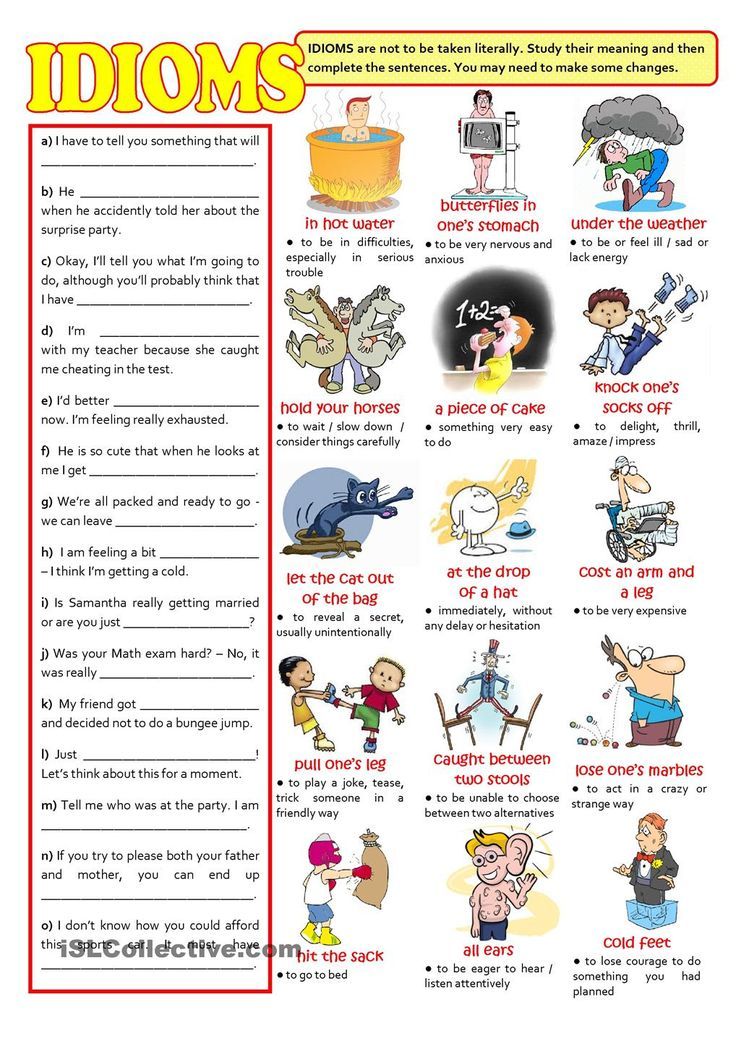
Should you buy a home? Move to another part of the country? Change jobs? Go back to school?
That ambiguity is normal, but when it happens again and again, and you can’t make a decision after weighing all the facts, you could be in trouble because your inner voice is talking to you and holding you back from investing more in the relationship.
That’s not always the case, but when you combine it with other factors, it can be an indicator of the health of your relationship.
Conversely, conflict can arise when you’re ready to make a big change and it feels like your spouse is holding you back.
Some people want to chase big dreams while others are happy with the white picket fenced house in the suburbs.
Red Flag #29: You ignored a deal-breaker at the beginning of your relationship.Sometimes, love conquers all. At other times, you’ll “just figure out later.”
You move ahead in your relationship and get married, not fully exploring the values and type of life you want to have in the future.
Deal breakers that you ignore can include the decision about whether or not to have kids, where you will live, how you view money, religion, and a few other big-ticket items that eventually come back to challenge a relationship.
The deal breakers may be buried for a while, especially in the heat and passion when you first get married, but sooner or later, they will need to be revisited.
You owe it to yourself to get the emotional support you need. Take care of your mental health. Talk to a therapist before making any major decisions. If you don’t have a therapist, I recommend checking out BetterHelp. It’s a great online therapy option for unlimited counseling anytime from anywhere. You can visit BetterHelp here to get started.
If you’ve decided that your marriage can’t be saved but aren’t sure what to do next, you may want to read these tips on how to tell your spouse that you want a divorce.
Looking for more divorce tips? Here are a few of our favorite guides and resources:
- 101 Financial Pitfalls of Divorce
- How to Protect and Rebuild Your Credit in a Divorce
- What Are The Types of Divorce
- How Should I Prepare for Divorce
25 Warning Signs Your Marriage Is in Trouble
Is there something in the back of your mind that keeps telling you that something is wrong in your relationship? A troubled marriage doesn’t spell the end of your relationship. Acknowledging these signs before it’s too late can actually be a saving grace to you and your partner. If your marriage is important to you, you should never wait too long before doing something about fixing it.
Acknowledging these signs before it’s too late can actually be a saving grace to you and your partner. If your marriage is important to you, you should never wait too long before doing something about fixing it.
You may think of relationship warning signs your marriage is in trouble as something more obvious like habitually staying late at work or showing signs of having an affair. The truth is, signs your relationship is in trouble could be hiding right under your nose. The changes can be so gradual they are hard to detect.
Don’t be caught off-guard in your relationship.
25 signs that say your marriage is in troubleAre you worried thinking, “My marriage is falling apart.” Take advantage of these 25 warning signs that you are in a troubled marriage.
1. You can’t let the past goThe marriage vows recite the phrase “for better or worse” for a reason. Marriage has its ups and downs, and some of those downs can be devastating.
However, a couple devoted to one another finds a way to rise above betrayal, annoyances, and hard times and learn to forgive one another for their faults. However, those facing the rocky road of a troubled marriage may find that forgiven follies from days gone by are being brought up repeatedly.
However, those facing the rocky road of a troubled marriage may find that forgiven follies from days gone by are being brought up repeatedly.
Dredging up old arguments that have already been forgiven is a definite sign that you’re not feeling connected to your partner any longer.
2. You fight about everythingCouples who are parting ways emotionally begin to lack the patience they once had for putting up with one another’s imperfections. If you’re not bringing up old arguments, you seem to have no trouble finding new topics to fight about.
In fact, your arguments are incessant, and you seem to be fighting about the same topics over and over again. From serious issues like money, family planning, and fidelity to those who forgot to throw the empty milk jug in the trash, you now have a treasure trove of nitpicks you can’t seem to let go of.
3. Hiding moneyHiding money from your significant other or having money hidden from you is a bad sign that you are in a struggling marriage.
Hiding money often signifies either that the partner no longer feels comfortable or trusting enough to share their financial situation with their marriage mate. It could also indicate an attempt to privately save up enough funds to move out and pursue a separation.
Hiding finances may also be a way of shielding one partner from seeing out-of-character spending on such things as a hotel room, gifts, or other expenses related to having an affair.
Related Reading: How to Avoid the Money Issues That Can Destroy Your Marriage4. You don’t make decisions together
A marriage is a partnership. This is two lives coming together and deciding equally how to move forward with important decisions. The moment you shut your partner out of decisions regarding finances, your home, your children, or your relationship should be a monumental red flag.
Related Reading: What Exactly is an Equal Relationship?5.
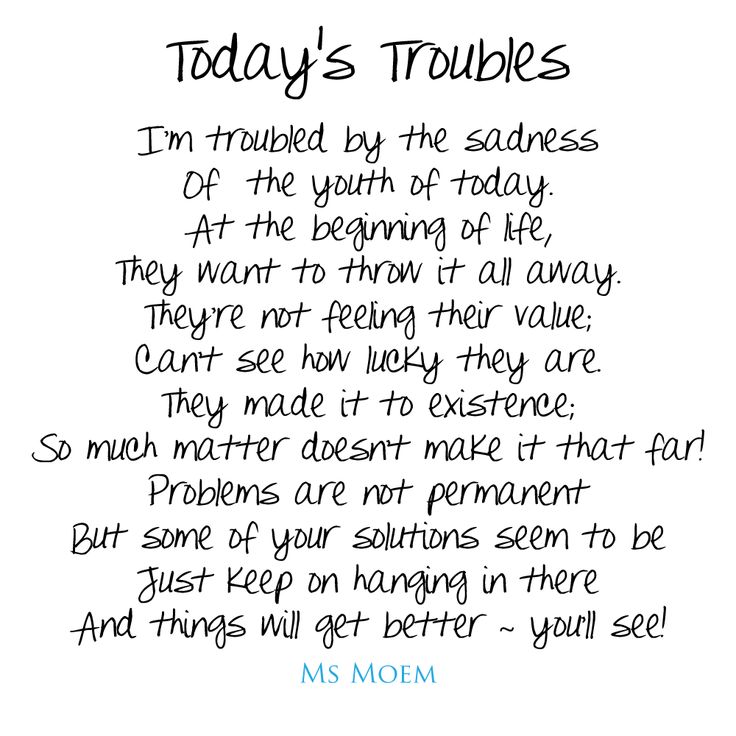 You start thinking about what-might-have-been
You start thinking about what-might-have-beenWhen people are in unhappy relationships, they tend to dwell on the last romantic encounter that made them happy. This could be a summer fling, an ex, or a first love. Some may even start to wonder what kind of life they could have with a close friend or work colleague.
Also Try: Are You In An Unhappy Relationship Quiz6. Infidelity
While it is normal to notice the opposite sex, there is a big difference between noticing someone is attractive and actually being attracted to them. When you start dwelling on a potential sexual relationship with someone other than your marriage mate you are asking for trouble.
Both men and women cheat for the same reasons: a lack of physical needs are being met or a lack of emotional connection and reassurance. It goes without saying that cheating is beyond the signs of a failing marriage that says your relationship is in trouble.
7. Separate bedrooms
Separate bedroomsSeparate bedrooms may lead to separate lives. Scientifically, physical touch is an important aspect of feeling connected to your partner and can release a burst of oxytocin. It doesn’t matter if this manifests itself through holding hands or spooning in the night. Of course, all of this depends on your personal habits as a couple.
For example, if you have always slept in separate bedrooms due to conflicting work schedules or sleep issues then this would not be a cause for alarm.
8. The sex has dwindledA change in sexual intimacy is never good for a relationship. Commonly women lose interest in sex with their partners due to a lack of emotional connection, while men lose interest because they are bored.
Either way, a lack of sex is one of the red flags in marriage. Sex is what bonds you as a couple and is one of the things you share exclusively with one another. It triggers the brain to produce oxytocin, relieves stress, and lowers trust barriers put up by the brain.
Related Reading: 4 Signs of a Low Sex Marriage9. You’re not taking care of yourself anymore
When partners are going through a hard time, they usually stop taking care of themselves. This could mean you stop dying your hair, working out, dressing up. If you haven’t changed out of your pajamas in three days, you are definitely experiencing a slump.
10. You start introducing distractions to hide from your problemsWhen going through a struggling marriage, many people start to look for “Band-Aid” solutions to cover up the real issues happening in the relationship. Couples may introduce the idea of a wild vacation or even open up the discussion of having children.
Related Reading: Date Nights, Vacations, and Couple Retreats – Why Are They so Important11. Lack of connection
This is one of the signs of separation in marriage and takes several forms. One of the most common issues that arise is that the couple puts so much emphasis on the children that their relationship suffers.
It often isn’t until the children are grown that the couple realizes how far they have grown apart. When you stop spending time together or stop communicating, it only widens the feeling of separation.
Related Reading: 3 Detrimental Effects of Lack of Communication in Marriage12. Lack of intimacy
Another tell-tale sign of possible trouble is a lack of intimate connection. Lack of intimacy relates to a lack of touch, hand-holding, kissing, hugging, and sex.
In regards to sex, generally, one partner has a higher sex drive. This in and of itself is not a problem. The problem comes when that partner begins to feel rejected, isolated, unloved, and essentially disconnected from their lower sex drive partner.
13. Infidelity: Emotional and physical affairs (Fantasizing and actualizing)There are many reasons why someone may choose to stray. Some reasons may be boredom, longing for attention and affection, the excitement of risk-taking, and so on and so forth.
It is common sense that this is a sign of marital trouble. The affair may provide a boost of feel-good chemicals like dopamine temporarily, but it will not transform the marital unhappiness, obviously.
This often makes things worse, eroding what little trust was already there. I have seen people cheat because they want to end things with their spouse and didn’t see another alternative as to how.
This may cause a problem for that person down the line. In states that have “fault” divorces, the act of infidelity increases the likelihood of being sued for damages and may leave that person at a disadvantage in the divorce settlement.
14. Fighting, criticizing, & continual conflictIt is inevitable that two people will not see eye to eye on everything, so disagreements are common and healthy.
However, when conflict becomes the new normal, it is worth taking a step back to observe what is going on. It has become so common in our culture to project our own low moods (anger, sadness, frustration, insecurity) onto others, especially our loved ones, we never stop to question:
- If it really works this way that someone else could make us feel something?
- Is there a better way to soothe ourselves and maintain good feelings in our primary relationship?
Related Reading: 7 Causes for Conflict in Marriage and How to Resolve Them15.
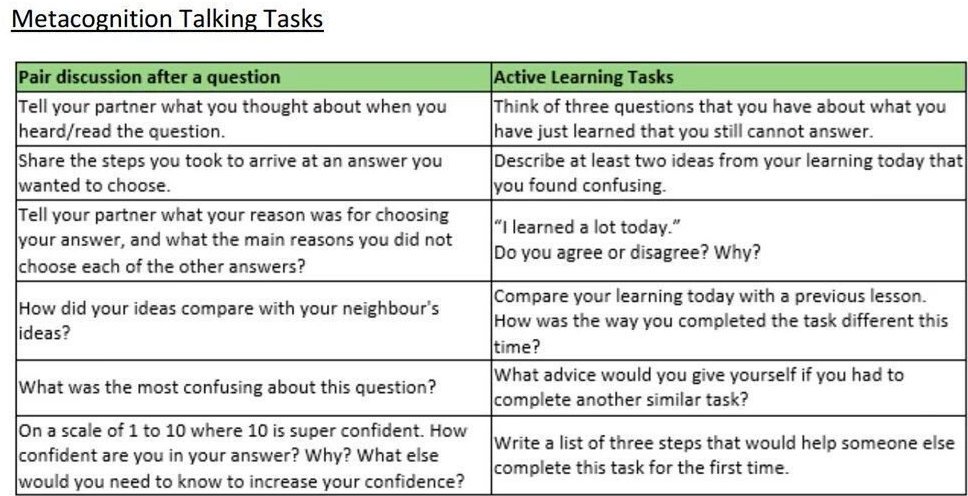 Habitual low-mood interaction
Habitual low-mood interactionHabitual low-mood interaction can take many forms. It can manifest as continually fighting over the same things or even as an escalation of fighting that borders on verbally abusive (or even physically abusive).
It also can show up in more subtle ways as constant criticism or attempts to change or control your partner’s behavior. It is ripe with judgment and obviously leads to a deterioration of goodwill in the relationship.
If you are on this habit train, jump to a new track if you have any desire at all to make your marriage work.
16. Communication is limited to single-syllable words and/or fightingI often ask my patients what they would be doing and/or experiencing if they were not so focused on their symptoms (ie-how many times a day they throw up or exercise or smoke pot or panic etc.). Well, the same holds true for couples.
If couples were not fighting, what would they be experiencing? Intimacy perhaps.
Related Reading: The Importance Of Communication In Marriage17. One or both parties have an addiction
Phil has a sexual addiction. He spends countless hours on the computer watching porn, primarily straight sex porn. Prior to the internet, he had DVD’s- and lots of them. His sex with his wife is non-existent . . he prefers to be alone with his electronics. His marriage to Donna has been troubled for years.
Frankly, both of them, whose communication is dominated by traveling or fighting, are terrorized by the prospect of intimacy and have been so for 35 years. Phil’s relationship with his addiction takes priority, as do others’ unhealthy relationships with food, alcohol, drugs, and work. These are all ways to leave a relationship.
18. The focus is completely child-centeredWhen there is no space created for the couple, the marriage is on the rocks. Whether it is focused on how to arrange the family hours due to a two-parent working household or how to deal with a sick child, unless there is room for the couple, there is a problem.
This is the case even when you think you are running the family properly and the leadership is great. There is no leadership if there is no couple.
19. A third party takes precedence over your partnerWhen you seek help from a family member (ie-your mother or a friend) consistently, there is a loyalty breach and an unresolved problem. This is often a deal-breaker.
20. You isolate yourselves and keep your troubles a secretThis is denial. Avoiding social gatherings and showing anything but a lack of pride in your partner is indicative of an unhappy marriage.
21. Sex is not enjoyable at least some of the timeWhile sex in the family household (marriage and particularly with kids) is not always a passionate affair, again, there should be that sacred space. It requires time and attention.
22. One or both parties are having or are thinking about having an affairAlthough affairs sometimes balance out the inequities in a marriage, it will never work long term and certainly not in a healthy marriage. Phil, who I mentioned above, brought a third party into the marriage-an affair, which his wife was aware of. Although she consistently complained, she did nothing to change the situation.
Phil, who I mentioned above, brought a third party into the marriage-an affair, which his wife was aware of. Although she consistently complained, she did nothing to change the situation.
While this is good for one person because growth is important, it may not be good for the couple. If the agreements that were entered into originally change because one party gets healthy, the marriage can no longer work.
24. The distance between you and your partnerThe distance between you and your partner is as great as it can be given the geographical boundaries of the bed . . . or the hose connection is built largely on energy and if there is no energy during the sleeping hours, there starts the disconnection.
When we sleep, our soul connects. Sleeping in separate rooms, for whatever reason you choose (i.e., he snores, your child requires an adult in their bed), all result from the need to disconnect.
Related Reading: How Distance in a Marriage Can Damage Your Marital Relationship25. The distance is as great as it can be outside of the bedroom
You avoid each other. You make excuses to be apart-work travel, social occasions, divide and conquer with the kids.
The energy outside the bedroom is generally more diffused yet still critical on a lot of levels. Underlying resentment, anger, and value differences can trigger distance and weaken the bond.
Other obvious warning signs your marriage is in troubleDomestic violence and emotional abuse are two dangerous signs that your relationship is in trouble. If you are experiencing abuse at the hand of your married mate, seek out a safe residence to stay at while you plan your separation or begin counseling.
If you see one or more of these signs of a troubled marriage, don’t fret. They are called “warning signs” for a reason. Only when you acknowledge marital problems can you take steps to fix the situation.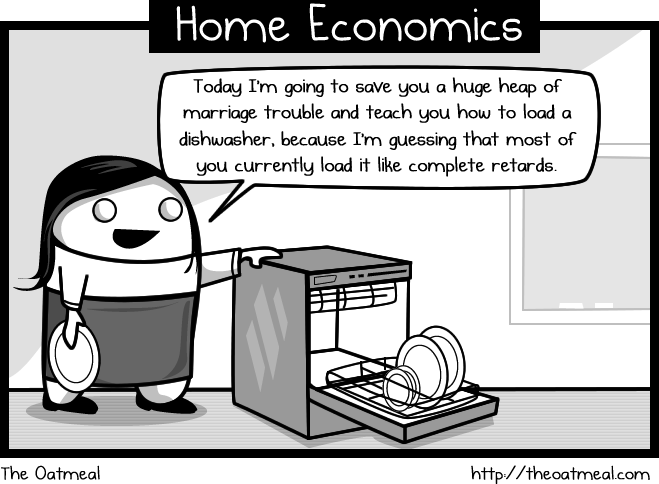
It’s only natural for marriages to hit some rough spots, but some partners report being largely unhappy and disconnected from the marriage for years before they seek some form of help.
It can be a difficult thing to assess if the marriage is in trouble, especially if the level of meaningful communication is minimal.
Related Reading: How to Fix and Save a Broken MarriagePractices that can save your troubled marriage
With that, disconnected marriages are not uncommon, and there is nothing above that means a couple is doomed and can’t fall back in love. So, how to fix a troubled marriage?
If you see the signs your marriage is failing, check out these practices to solve your marriage problems:
- Be aware
Gain awareness of the inherent biases that every human being has. Learn the basics of how the brain functions.
Learning how memory works, for instance, or the physical effects of rejection on the body is extremely useful because it allows you to come from a more neutral place in your interactions with your partner.
You will begin to see the innocence in your partner’s actions (and even your own).
- Be adjusting
It is common to try to fix your partner. However, this is unrealistic. You simply can not control or change another person. But, you can change yourself and that will change your level of happiness.
- Listen more
More often than not, we tend to speak a lot and not let our partners speak enough. However, the conversation is a two-way street. So, listen as much as you talk. To handle a troubled spouse, let your partner speak their heart out too.
Check out these 4 listening skills that will boost your relationship:
- Initiate action
Be the one to make the first move. Don’t wait for your partner to come to you. Remember, it’s a relationship, and no one is here to lose and win. It will always be the relationship that wins, no matter who puts a foot forward and makes the first move.
Don’t wait for your partner to come to you. Remember, it’s a relationship, and no one is here to lose and win. It will always be the relationship that wins, no matter who puts a foot forward and makes the first move.
- Be patient
Be patient in the process of saving your relationship. The results of your efforts will not show overnight. So, keep working together as a team, and eventually, you will find your relationship strengthening.
TakeawayIf you are willing to work on overcoming the marriage troubles, you will be able to resolve all the marital issues and pave the way for a happy marriage.
How to understand that your marriage has come to an end
https://racurs.ua/1527-kak-ponyat-chto-vash-brak-podoshel-k-koncu.html
Jan 20, 2016, 09:54
999
Angle
Most books and articles by psychologists advise how to save a marriage. But sometimes it's important to just understand that it's time to let each other go. So, if one or both partners do not want to apply the slightest efforts in order to reanimate the union, then such a marriage is doomed . Another factor is time. "The countdown begins to tick when one partner brings the couple's problems into the public eye," says Bryce Kaye, Ph.D., author of The Set for first aid in marriage. “The more time passes from now on without any effort being made, the less likely you are to stay together.”
But sometimes it's important to just understand that it's time to let each other go. So, if one or both partners do not want to apply the slightest efforts in order to reanimate the union, then such a marriage is doomed . Another factor is time. "The countdown begins to tick when one partner brings the couple's problems into the public eye," says Bryce Kaye, Ph.D., author of The Set for first aid in marriage. “The more time passes from now on without any effort being made, the less likely you are to stay together.”
There are some common signs that your marriage may be beyond repair.
1. You are no longer a couple.
A man and a woman whose union is over—or nearly over—usually lose their close bond, says Elayne Savage, Ph.D., author of Respite: Making Space for couples."
“If you no longer spend time together, if one or both of you are constantly busy at work, with friends or online, and at the same time you feel relieved that you do not have to be with each other, it means that you are moving away from marriage,” she explains.
2. One of you refuses to try.
Some marriages face serious challenges that seem insurmountable. This could be infidelity, the loss of a close family member, or prolonged lack of sex . But, as Alisa Bowman, author of The Project: Long and happily,” if one of the partners raises a problem, asks for help and makes it clear that the marriage will not survive if both do not start working, and the second at the same time refuses to meet halfway, then you can to say that such a marriage is in trouble.
“One partner can't try to do it all on their own,” says Bowman. "So you're not going anywhere." There is one life rule: if a whole year has passed without progress, it may be time to end it.
3. Relationships lack respect.
One of the most important aspects in a relationship is mutual respect, notes Savage. If this is not the case, if one of the partners is constantly rejected or feels condescending towards himself (and the second one does not notice this or refuses to discuss it) - it means that things are bad.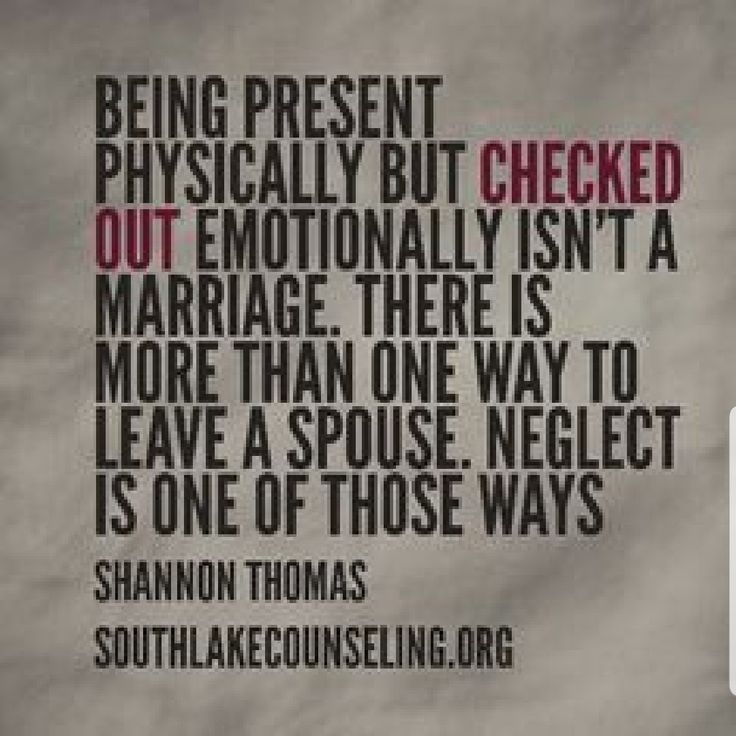 “Marriages that have reached this point can be called toxic: you are no longer a couple, it is only about attack and defense,” the expert thinks.
“Marriages that have reached this point can be called toxic: you are no longer a couple, it is only about attack and defense,” the expert thinks.
4. You are no longer a team.
It may sound strange, but it is true: in a healthy marriage both partners work as a team during everything from raising children and domestic troubles to supporting each other in matters of career and personal ambitions.
“If each of you has begun moving in your own separate orbit, or if you are no longer working together on routine issues, then this is a sign of a serious problem,” warns Savage.
5. The wrong half continues to be friends with the former lover/mistress.
Infidelity is a huge obstacle that is very difficult to overcome. To save a marriage, just ending the relationship on the side is not enough, notes Kay. Can't be fully experienced betrayal if the wrong half remains friends with a former lover or mistress. It doesn't matter what he or she says about the innocence of their current relationship. "Nothing good comes of it come out," says the expert.
It doesn't matter what he or she says about the innocence of their current relationship. "Nothing good comes of it come out," says the expert.
6. There is no compromise between wants and needs.
An essential part of marriage is to meet your partner's needs without compromising your own interests. It is a lifelong dance of give and take that requires constant communication. But if your partner consistently refuses to even listen to your wants and needs (time, attention, sexual/physical contact, help with children or household troubles), or doesn't want to voice their own, that's a wake-up call, says Kay.
7. One of the spouses is systematically cheating.
“Some men - and according to stereotypes, they are men - are simply not imprisoned for marriage. They are incapable of being monogamous, even if they showed with their whole appearance that they want to get married, ” explains Bowman. Even worse, they manage to accuse you of their depravity and unreliability, usually reproaching you for excessive suspicion and jealousy.
Betrayal, from which a marriage can recover, is followed by apologies and promises not to do it again. But this is not the case with serial cheaters: it is a problem that cannot be fixed and which, most likely indicates the end of the marriage.
8. You can't agree on whether to have children.
In marriage, there are many reasons to compromise, such as who will be in charge of finances, where to go on vacation, or exactly how to solve minor family problems. But if one of you knows that wants a child , and the second categorically refuses, then such a relationship is at risk.
If one of you is leaning towards having or not having children , then over this you can still work. But when it comes to a principled position, when for one of the partners a child is an unconditional goal, then such a marriage is likely to fall apart.
9. You no longer communicate with each other.
No problem in marriage can be solved without an open, frank conversation. If all you ever talk about is everyday things, like who to buy milk today, then a divorce may well be just around the corner, Savage warns. “The lack of personal, intimate communication in a marriage is a very bad sign, especially if you are talking to other people.” she notes.
If all you ever talk about is everyday things, like who to buy milk today, then a divorce may well be just around the corner, Savage warns. “The lack of personal, intimate communication in a marriage is a very bad sign, especially if you are talking to other people.” she notes.
10. Decreased frequency and quality of intimacy.
“It’s about the couple not having enough interest in sex and not talking about it or doing anything about it,” explains Dawn Cardi, a lawyer from Manhattan. Or they have different opinions on this matter. The bottom line is that sex doesn't work anymore, and hasn't for a while."
11. Swearing and arguments happen more often than before.
According to Lauri Puhn, New York-based family law attorney and author of Instant Persuasion, the controversy and verbose accusations will never stop. "It happens over and over again for the same reasons, she says. - You argue about the same thing, and the further, the more often. And there is no solution to the problem - this is a road to nowhere.
And there is no solution to the problem - this is a road to nowhere.
The expert notes that the cause of most problems in relationships is insufficient communication: “It all comes down to communication skills and the ability to resolve conflict situations. My research shows that 69% of divorced couples complained about unresolved conflicts that caused a feeling of hopelessness.
12. Excessive planning or spending a lot of time on the computer and smartphone.
Little time spent alone with each other, when it is initiated by one or both halves, is a strong indicator that a marriage is in danger. “There is a certain amount of work that needs to be done, but if it becomes more and more, especially when it comes to weekends, then this is called distance from each other, ”explains Cardi.
According to her, if one of the partners seeks to spend as little time as possible with the other half, then the relationship can be considered problematic.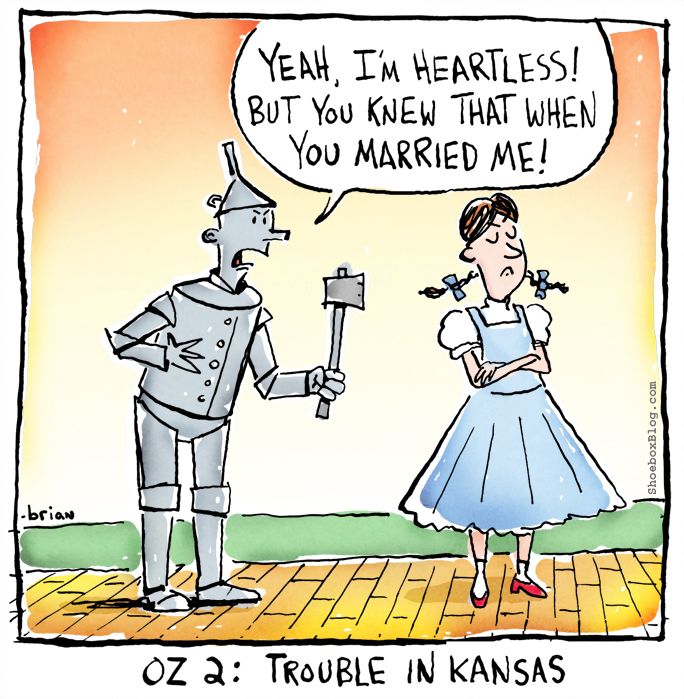 "If you don't spend time together, then you don't have no intimacy,” says Cardi. "You can't keep a marriage going by emailing each other."
"If you don't spend time together, then you don't have no intimacy,” says Cardi. "You can't keep a marriage going by emailing each other."
13. Changes in relations with money.
From a legal perspective, Cardi says, the changes around finance can tell a lot. “People come to me and say: my husband has changed his bank account, he is transferring money. It's a sign that he is preparing to get out of marriage and get on the path of divorce, ”she shares.
14. Dreams of being alone or finding someone else.
As Poon notes, this is the most serious sign, since such thoughts often occur immediately before a breakup. "You start dreaming because everything else no longer inspires you hope,” she explains. You wonder what your life would be like if you weren't together. Maybe you don't really want a divorce, you might even want to stay together, but at the same time, you are so disillusioned about the future together that it just becomes interesting - how it could be. Such thoughts often open the way to treason.
Such thoughts often open the way to treason.
* * *
The list goes on, but it may vary from couple to couple. However, the question remains the same: how to prevent the train from derailing? “Talk about it and acknowledge that there are communication problems. This will help, if necessary, to attract a third party - a professional, advises Poon. “But, in truth, you have to seal the marriage even when you enter into it. It's normal that people who decide to be together notice more and more differences over time. And in order not to lose touch, you need dedication and attention to detail. This is the most important part of the plan for preservation of marriage - to notice the problem in time and turn to face it.
Translation: Lyudmila KRYLOVA
Through years of observing couples, John Gottman, a psychologist at the University of Washington, discovered the feelings, thoughts, and behaviors that destroy a marriage. In a healthy marriage, husband and wife openly and calmly express their dissatisfaction. They make informed remarks, point out specifically what upsets them, and criticize the spouse's action, not him, telling him their reaction: "When you forgot to call back, I decided that you didn't give a damn about me." It is a completely different matter if, in the heat of irritation, complaints are expressed in a rude manner, in the form of hostile criticism of the spouse’s character: “You always behave like a careless egoist. You cannot be relied upon for anything." This is the earliest warning signal that a marriage is in danger. Many use a specific grievance to launch a global attack on a partner. After such a critical assessment, a person becomes ashamed, he feels guilty and defective, he feels that he is treated with hostility. Tip! Try not to lash out at your partner. You can express dissatisfaction with what he did, but do not criticize him as a person. Complaints should not turn into hurtful remarks about character, they should be a clearly articulated statement that some particular act or deed causes suffering. The situation is made even worse if criticisms are made with contempt, a particularly destructive emotion that usually accompanies anger. This manifests itself not only in words, but also in the tone of voice and angry expression on the face. The most open form of contempt, of course, remains a mockery or insult such as: "nothingness", "rag", "rubbish". The body language is no less offensive, especially such a universal mimic signal for expressing disgust as lips twisted in a sly smile or a look raised to the ceiling, corresponding to the exclamation: “Well, you are such a type!” A mimic sign of contempt is created by the contraction of a special muscle that stretches the corners of the mouth to the side (usually to the left) and the simultaneous rolling of the eyes. Tip! Show empathy, respect and love even during a fight. Concentrate on how to resolve the disagreement and come to reconciliation. The most obvious reaction to criticism is to strike back with angry reproaches. This path, as a rule, leads to an inconclusive competition in shouting over each other. But an alternative strategy - flight - can be even more harmful, especially if the "escape" is reduced to falling into unbreakable silence. One of the spouses simply becomes impenetrable, assuming a stony expression on his face, falling silent and moving away from the conversation. By doing so, he sends a powerful unnerving signal, something like a combination of icy restraint, superiority and hostility. This reaction has a destructive effect on relationships: it cuts off all opportunities to resolve differences. In Gottman's research, the stone wall of silence was found mainly in marriages moving inexorably towards disaster. In 85 percent of these cases, the husband resorted to this type of defense in response to the actions of his wife, who attacked him with caustic criticism. Tip! No matter how rude your partner's words may be, try to understand what upset him so much. Listen to complaints carefully. Show that you are able to look at things from a different angle and respect someone else's point of view, even when you do not share it. Or take responsibility and apologize if you feel you are wrong. Much depends on how we are accustomed to perceive problems in marriage - from a pessimistic or optimistic position. The pessimistic point of view suggests that the partner is naturally full of flaws that cannot be changed: “He is selfish and self-absorbed; this is how he was brought up, this is how he will always be; he expects me to fulfill his every whim, and he does not care what I feel. A person who thinks like this feels like a victim in a relationship and constantly feeds his resentment, focusing only on negative points, ignoring all the good things and finding new confirmations of his own rightness. In such a situation, even the obviously good deeds of the other partner will be misinterpreted. The opposite - optimistic - point of view boils down to the following: “Well, yes, now he is demanding, but before that he was attentive; maybe he's in a bad mood." This position does not put an end to a partner or marriage as something irreparably damaged and hopeless. On the contrary, it explains the unpleasant moment by circumstances that may change. Tip! Monitor poisonous thoughts and question them. Strive to evaluate facts more objectively, consider other points of view. Remind This is probably the most dangerous turning point in a marriage, a catastrophic shift in a relationship. Flooded spouses are unable to listen without distorting the meaning of words or respond with a clear mind. They just want to stop everything or run away, and sometimes even fight back. For most couples, these moments happen only occasionally. But the real problems in families arise when at least one of the spouses begins to feel emotional flooding almost constantly. Such a person is always waiting for an attack, so even the most harmless remarks of a partner cause him a sharp reaction. Tip! Learn to moderate your own agitated feelings by using various relaxation techniques. Agree in advance with your partner that during a quarrel, any of you may require a 20-minute break: sometimes it is useful to go to different rooms for a while to cool down and then continue the conversation in a calm tone. After a divorce: how not to become enemies with an ex and save children from stress
5 signs that your marriage is under threat
Irina Balmanzhi 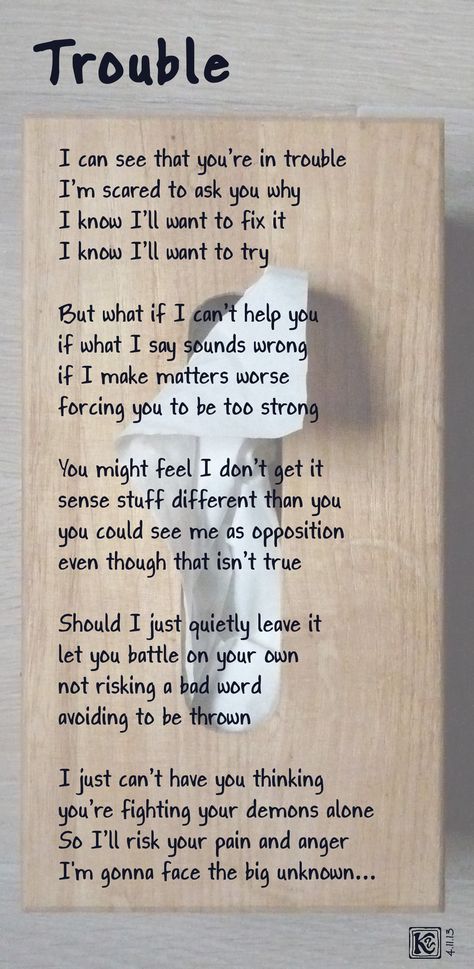 If the situations described below are typical for your family, then with a high probability you will get divorced in the next three to four years. But this does not mean that you have no chance to correct the situation.
If the situations described below are typical for your family, then with a high probability you will get divorced in the next three to four years. But this does not mean that you have no chance to correct the situation. Harsh criticism
Source  And, most likely, he will decide on a defensive reaction (he will attack in response or go into unbreakable silence), and will not take any steps at all to improve the state of affairs.
And, most likely, he will decide on a defensive reaction (he will attack in response or go into unbreakable silence), and will not take any steps at all to improve the state of affairs. Contempt
Source  When such a grimace appears on the face of one of the spouses four or more times in a 15-minute conversation, it means that in less than four years the husband and wife will part forever.
When such a grimace appears on the face of one of the spouses four or more times in a 15-minute conversation, it means that in less than four years the husband and wife will part forever. Wall of Silence

Source Pessimistic attitude

Source
to yourself about the partner's good deeds, which will serve as proof of his attention and care. Emotional flooding
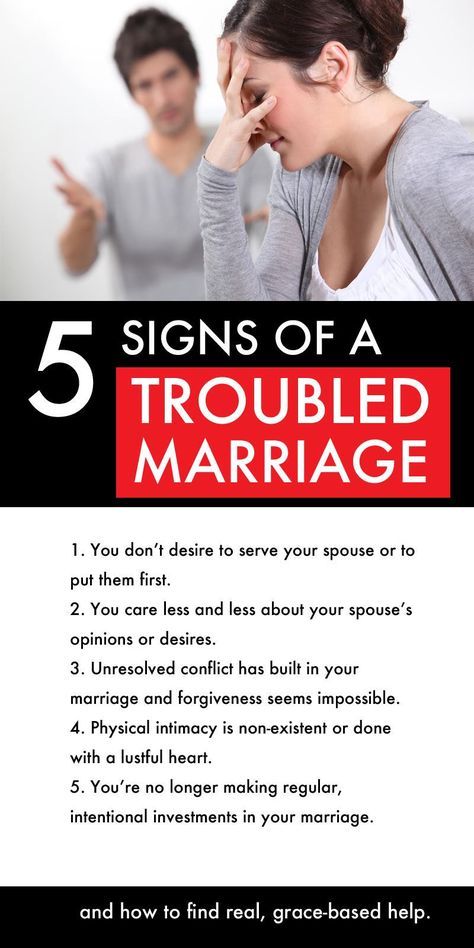 "Flooded" husbands or wives are so overwhelmed by rejection from partners and their own reaction that they literally drown in terrible, overflowing experiences.
"Flooded" husbands or wives are so overwhelmed by rejection from partners and their own reaction that they literally drown in terrible, overflowing experiences.
Source 
Learn more





